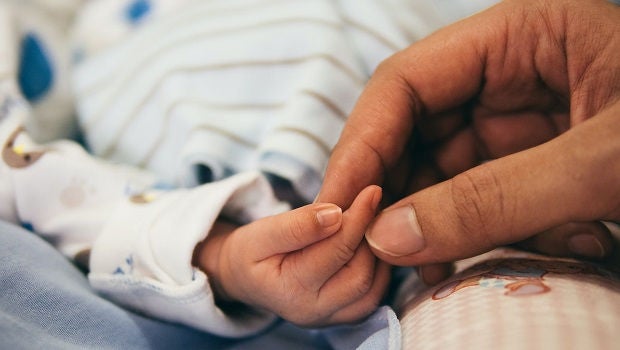
Allergies can be a major mystery, but the latest findings from a Singapore-based study may shed some light. Findings showed the pathways through which mothers can pass allergies to their offspring in the womb. The discovery of this link opens potential intervention strategies to minimise allergies in newborns.
Not a discovery to sneeze at
Up to three in ten people around the world are affected by allergies, and the percentage is set to rise. Imagine if there was a way to minimise the possibility of a child born with allergies from the mother, the percentage could be much lower over time. Findings from a Singapore-based study by researchers from the Agency for Science, Technology and Research (A*STAR), KK Women’s and Children’s Hospital (KKH) and Duke-NUS Medical School showed the pathways through which mothers can pass allergies to their offspring in the womb.
“Our research has really exciting findings that may explain the high incidence of early onset eczema in children of mothers with clinically proven eczema,” said Professor Jerry Chan, Senior Consultant, Department of Reproductive Medicine at KKH, Senior National Medical Research Council Clinician Scientist, and Vice Chair of Research with the Obstetrics and Gynaecology Academic Clinical Programme at the SingHealth Duke-NUS Academic Medical Centre.
“Allergies begin very early in life,” said Associate Professor Ashley St. John, an immunologist at Duke-NUS’ Emerging Infectious Diseases Programme and a senior co-author of the study. “Infants experience allergic responses closely linked with the mother’s allergic response in ways that cannot only be explained by genetics.”
Get updates on Tomorrow's Medicine in your mailbox! Click here to subscribe.
The roots of allergy
Immunoglobulin E (IgE) is an antibody responsible for triggering allergic reactions. In this research, the study team found that IgE can cross the placenta and enter the fetus where it programmes the fetal immune system in such a way that it can recognise the same allergen even though it has never seen it before, i.e. maternal IgE can prime the fetus after crossing the placenta, and causing the fetus to become allergic to the same condition as the mother after birth.
The study, which used an animal model conducted in line with National Advisory Committee for Laboratory Animal Research (NACLAR) guidelines, found that baby mice had the same allergic reactions as their mother who was exposed to a specific allergen.
Inside the mice fetus, the antibody binds to fetal mast cells, a type of immune cell that releases chemicals that trigger allergic reactions like runny noses and asthma. Newborn mice develop reactions to the same type of allergen as their mothers at the point of initial exposure. In contrast, adult mice require two exposures.
The human maternal IgE can bind to human fetal mast cells, indicating human babies will be affected in a similar way through a process called degranulation, where mast cells release chemicals in reaction to an allergen trigger.
The good news from the study was that the sensitivity is allergen-specific. Baby mice with a ragweed pollen allergy, for example, did not react to other allergens. The transfer of sensitivity also appeared to fade with time.
The study further showed that the IgE transfer happens with the aid of another protein, FcRN. Mice without the FcRN protein did have IgE transfer nor develop allergies after birth.
Nipping the allergy in the bud
The findings can lead to potential intervention strategies to minimise the occurrence of neonatal allergies over time.
“From a clinical point of view, developing a further understanding in placental transfer of IgE, and the mechanism of fetal mast cell activation would be key to developing strategies to reduce the chance of eczema or other allergies from being transferred from mother to baby,” said Prof Chan.
This is the first study to show that fetal mast cells are able to bind to IgE. “There is currently a significant lack of knowledge on mast cells that are present early on in the developing fetus. We discovered that fetal mast cells phenotypically mature through the course of pregnancy, and can be sensitised by IgE of maternal origin that cross the placental barrier. The study suggests that a highly allergic pregnant mother may potentially transfer her IgE to her baby that consequently develop allergic reactions when exposed to the allergen,” said Dr Florent Ginhoux, Senior Principal Investigator at A*STAR's Singapore Immunology Network (SIgN), and senior co-author of the study.
These discoveries may have been a huge step forward in understanding how neonatal allergies originate from, but the journey has just begun. The team is now performing studies to better understand the impact of IgE on fetal mast cell functions in different tissues, and to extrapolate these findings into human pregnancies where allergies are present. These tandem studies may identify new targets to reduce the IgE transmission in susceptible pregnancies to reduce the risk of early onset allergies in newborns.
Get updates on Tomorrow's Medicine in your mailbox! Click here to subscribe.
Featured image: Unsplash













 Get it on Google Play
Get it on Google Play